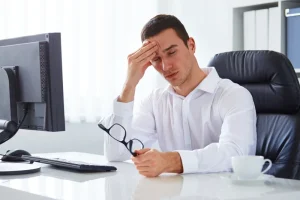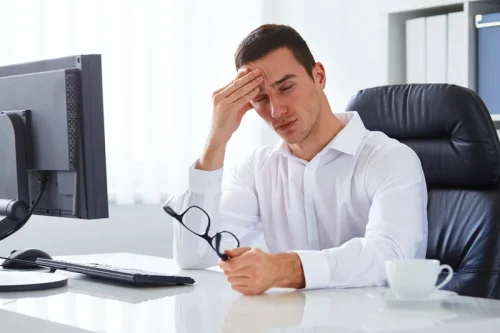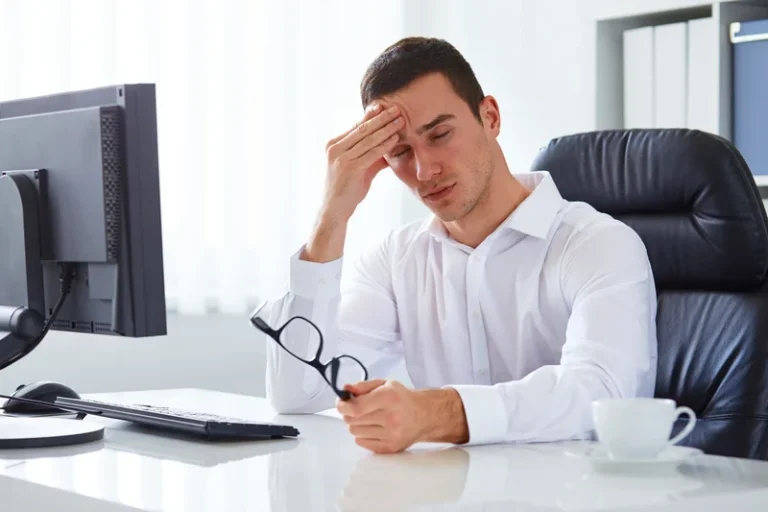10 Remedies To Use If You Quit Drinking and Cant Sleep

How coffee makes someone sleepy is that the caffeine in coffee blocks adenosine receptors in the brain, which prevents adenosine from causing sleepiness. Over time, the body increases its sensitivity to adenosine, and once caffeine is metabolized, it can cause excessive tiredness. It’s easy to fall into a cycle of drinking to reduce anxiety symptoms, only to have them return tenfold the next morning. In response, you might drink more to deal with the anxiety.
Caffeine Tolerance
Almost everyone experiences postprandial sleepiness at some point in their lives, but the causes aren’t yet fully understood. But when the alcohol wears off, your nervous system must readjust. You may end up feeling insomnia after drinking more restless, anxious and irritable than before you drank. Many people who drink alcohol experience brain fog, and it can be quite debilitating. Fortunately, there are ways to get rid of brain fog after drinking. Staring at the clock while you are trying to fall asleep can be very counterproductive as it can increase stress and anxiety levels, making it more difficult to fall asleep.

What is the best alcoholic drink for sleep?
- When we consume alcohol, it can cause our bodies to become dehydrated, leading to increased thirst and a need to urinate more frequently.
- It’s illegal in every U.S. state to drive with a blood alcohol concentration (BAC) of 0.08 or higher.
- Ultimately, developing a personalized sleep routine that works for you is key.
- Light exposure is another critical factor in sleep quality.
- This disruption often leads to fragmented sleep and a feeling of grogginess the next day.
If you’re trying to cut back or quit drinking, it’s important to find alternative coping strategies to manage these feelings in a healthy way. Be mindful of when you eat, as if you go to bed with an empty stomach you may become hungry, which will disrupt your ability to fall or stay asleep as well. If you are hungry and it is close to your bedtime, eat a small, healthy snack. Yes, rehab for insomnia during alcohol withdrawal is beneficial. Alcohol withdrawal insomnia is a common challenge, and rehab programs offer evidence-based strategies to https://ecosoberhouse.com/ manage symptoms. With a focus on sleep hygiene, relaxation techniques, and comprehensive addiction treatment, rehab provides professional support for a successful recovery journey.

Can lifestyle changes improve sleep during alcohol withdrawal?
Children who have nausea and vomiting can get dehydrated much more quickly than adults. Take a child to see a doctor if they’re vomiting for more than 12 hours. If you’re pregnant, don’t take any OTC medications without consulting your doctor first. While the BRAT diet is often recommended, it doesn’t have very many scientific studies behind it. Talk with a healthcare professional for more information on the BRAT diet. A recent 2021 study involving 103 hospitalized patients suggested that peppermint oil was an what is alcoholism effective remedy for nausea relief.
- But in the case of already feeling dizzy, you don’t actually want to be dehydrated as well.
- Those with a wider circle of support have a better chance of staying sober.
- This practice not only promotes physical relaxation but also helps distract your mind from any racing thoughts that might be keeping you awake.

Mindfulness meditation can be a valuable tool for improving sleep quality, particularly when alcohol has been consumed. This practice involves focusing on the present moment and observing your thoughts without judgment. Even a short 5-10 minute session before bed can help calm your mind and prepare your body for sleep. Moreover, alcohol consumption can wreak havoc on our circadian rhythms, the internal biological clock that regulates our sleep-wake cycle.

Top Posts
One-third of Americans typically sleep less than the recommended minimum of seven hours per night. And research shows that caffeine consumption is linked to insomnia. Studies have shown that consuming caffeine even six hours before bedtime can disrupt nighttime sleep. This is likely due to caffeine blocking the receptors of a chemical found in human cells called adenosine. It may also be due to poor sleep habits or the development of caffeine tolerance.
